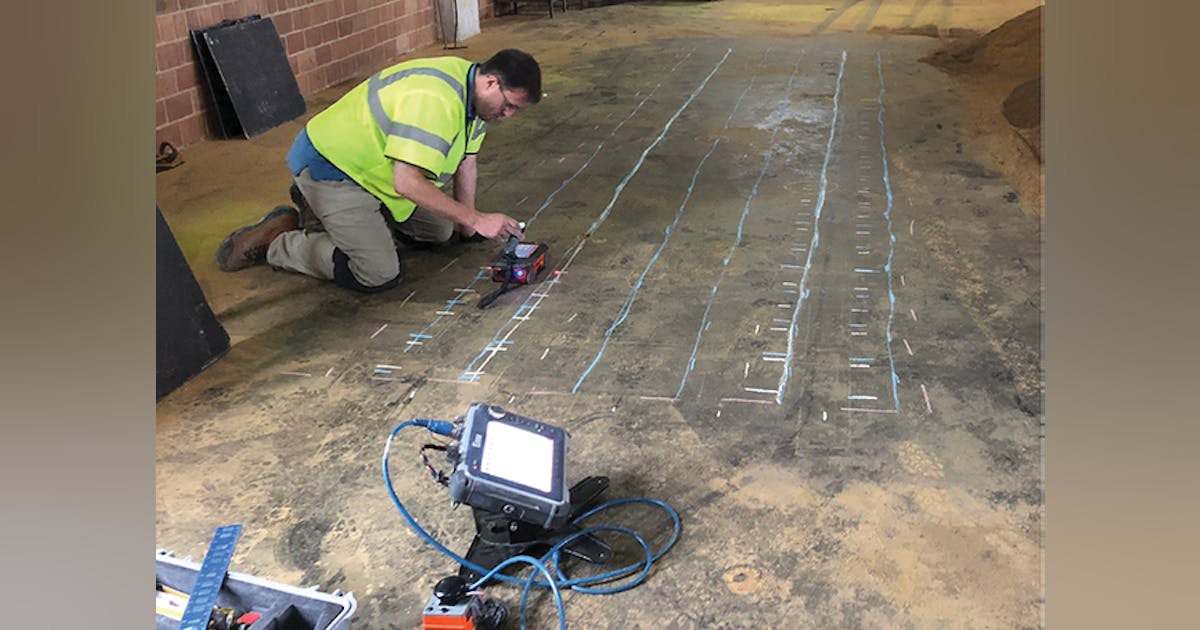Selecting the Right Concrete Scanning Equipment
Selecting the Right Concrete Scanning Equipment
Blog Article
Past the Surface Area: Leveraging Advanced Concrete Scanning Techniques for Unmatched Precision and Insight
In the realm of building and infrastructure upkeep, the pursuit for accuracy and thoroughness is never-ending. Advanced concrete scanning techniques have actually become important tools in this pursuit, providing a peek underneath the surface to introduce a globe of important understandings. By utilizing advanced innovations, experts can uncover abnormalities, assess the problem of concrete structures, and make notified choices that form the course of projects. The implications of these strategies prolong far past plain surface-level assessments, assuring a deepness of precision and understanding that is exceptional.
Relevance of Advanced Concrete Scanning
The significance of utilizing advanced concrete scanning methods exists in the unmatched precision they offer for detecting sub-surface abnormalities and guaranteeing architectural stability. By employing innovative modern technologies such as ground-penetrating radar (GPR), electro-magnetic induction, and advanced sonar imaging, building specialists can dive below the surface of concrete frameworks with a degree of precision that much surpasses standard inspection approaches. Concrete Scanning. These strategies allow the recognition of covert threats like rebar corrosion, voids, channels, or post-tension wires that could compromise the security and security of a structure in time
Additionally, progressed concrete scanning supplies invaluable understandings right into the total problem of a concrete aspect without the requirement for intrusive procedures, minimizing the risk of creating damage throughout the analysis process. The capability to identify the exact location and deepness of possible concerns permits for targeted repair services and upkeep, eventually prolonging the life expectancy of the structure and maximizing its efficiency. Essentially, the value of innovative concrete scanning can not be overemphasized in the realm of construction and infrastructure maintenance, where precision and reliability are vital.
Kinds Of Cutting-Edge Technologies

Anomalies and Flaw Detection

In enhancement to GPR, concrete scanning techniques like thermography and impact-echo testing are also reliable in discovering abnormalities and defects. By leveraging these innovative methods, experts can proactively resolve architectural problems, making sure the long life and safety of concrete structures.
Assessing Concrete Condition
Exactly how can designers accurately examine the problem of concrete frameworks to guarantee their longevity and security? Assessing the concrete problem is an important element of keeping infrastructure honesty. Various advanced concrete scanning techniques are used for this function. Ground-penetrating radar (GPR) is generally made use of to examine the interior structure of concrete, finding spaces, splits, and various other abnormalities that may compromise its stamina. Furthermore, impact-echo testing can supply understandings into the thickness and honesty of concrete components. Ultrasonic pulse speed testing is one more useful approach for assessing concrete top quality by determining the rate of acoustic waves through the product.
In addition, aesthetic evaluation continues to be a fundamental component of concrete condition assessment. Engineers visually click this analyze the surface for signs of deterioration, such as spalling, breaking, or staining. Integrating non-destructive screening techniques with aesthetic evaluations permits a comprehensive examination of concrete condition, making it possible for designers to identify possible concerns early on and implement timely upkeep or repairs. By leveraging these advanced techniques, engineers can make sure the lasting longevity and security of concrete frameworks.
Enhancing Decision-Making Procedures
In the realm of infrastructure management, optimizing decision-making procedures is important for guaranteeing the reliable maintenance and durability of concrete frameworks. Enhanced decision-making procedures in concrete monitoring entail making use of advanced scanning methods to gather in-depth information on the problem of frameworks. By leveraging innovations such as ground-penetrating radar and 3D imaging, stakeholders can make enlightened decisions relating to support, fixing, or replacement methods.
These advanced scanning methods offer invaluable insights into the interior structure of concrete, recognizing potential concerns such as gaps, splits, or rust that may not be noticeable on the surface area. This degree of comprehensive details permits positive maintenance preparation, reducing the danger of structural failings and enhancing the overall lifespan of concrete structures.
In addition, by integrating digital documents and analysis devices right into the decision-making process, stakeholders can track the evolution of concrete problems gradually, enabling predictive maintenance techniques and maximizing source appropriation. Inevitably, the integration of advanced concrete scanning strategies boosts decision-making processes by giving unrivaled accuracy, understanding, and performance in framework monitoring.
Final Thought
In conclusion, advanced concrete scanning techniques provide unequaled accuracy and insight in finding abnormalities, issues, and analyzing the problem of concrete frameworks. By leveraging cutting-edge technologies, decision-making you can try here processes can be enhanced, resulting in more effective and enlightened remedies for preserving and fixing concrete infrastructure. These techniques play an important duty in making sure the safety and durability of concrete frameworks, making them an indispensable device in the area of building and construction and design.
Moreover, advanced concrete scanning offers important understandings into the overall problem of a concrete element without the need for intrusive actions, reducing the threat of causing damages during the analysis process - Concrete Scanning. One more ingenious modern technology is 3D X-ray scanning, which offers comprehensive photos of the interior framework of concrete, offering important information without the need for devastating testing. Additionally, Concrete Cover Meters are used to gauge the density of concrete cover over reinforcement bars properly. Improved decision-making processes in concrete management include utilizing innovative scanning strategies to collect in-depth data on the problem additional reading of structures.In verdict, progressed concrete scanning strategies supply unrivaled precision and understanding in discovering abnormalities, defects, and examining the problem of concrete structures
Report this page